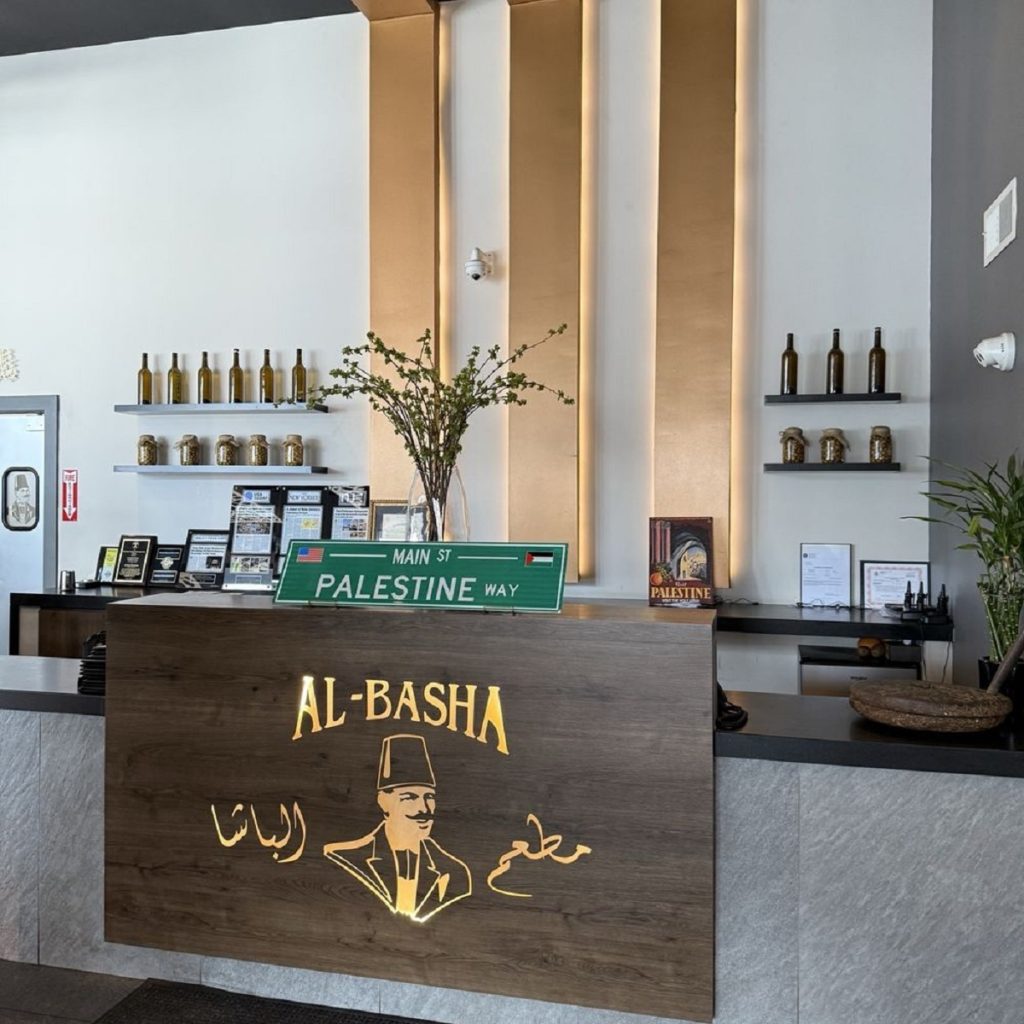Paterson, New Jersey, has earned the nickname “Little Ramallah” because of its thriving Arab-American community. With thousands of Palestinian, Syrian, Lebanese, and Yemeni families calling Paterson home, the city has become one of the largest Arab cultural centers in the United States. Beyond its history and demographics, Paterson is best known for its rich halal food culture, from family-owned restaurants to legendary bakeries.
The Story Behind “Little Ramallah”
Arab immigration to Paterson began in the late 19th century, with families arriving from Palestine, Syria, and Lebanon. Many settled in South Paterson, where they established businesses, mosques, and community centers. Over time, the neighborhood earned the name “Little Ramallah” because of the large Palestinian presence.
Today, Paterson is home to one of the largest Palestinian communities in the U.S., alongside vibrant Syrian and Yemeni populations. The area is not just a residential hub—it’s a cultural and culinary landmark.
A Culinary Tour of Paterson’s Arab Halal Restaurants
Walking through South Main Street and surrounding neighborhoods, visitors are immersed in authentic Arab cuisine. The food scene reflects the diversity of the Arab world, offering everything from shawarma and falafel to maqluba, mansaf, mandi, and knafeh.
1. Palestinian Cuisine
-
Al-Basha Restaurant – A local favorite known for generous platters of shawarma, mixed grills, and falafel.
-
Knafeh shops – Paterson is famous for its Nabulsieh knafeh, a cheese-based dessert from Nablus, Palestine.
2. Syrian & Lebanese Flavors
-
Fattal’s Bakery (since 1968) – Legendary for fresh pita bread, zaatar, and Middle Eastern pastries like maamoul and baklava.
-
Nouri Brothers Market – A mix of grocery and halal deli, offering spices, cheeses, and hot prepared foods.
3. Yemeni Cuisine
-
Yemeni restaurants in Paterson serve mandi (spiced lamb and rice), saltah (a bubbling meat stew), and tandoor bread fresh from clay ovens. These eateries are especially popular during Ramadan and family gatherings.
Markets, Bakeries, and Community Life
Paterson’s Arab community has preserved its traditions through halal grocery stores, spice markets, and bakeries. Shops sell everything from olive oil and dates to Arabic coffee and fresh pita bread. The atmosphere reflects the feeling of walking through a Middle Eastern souq.
Beyond food, mosques and cultural centers play a central role in community life, hosting events, religious celebrations, and educational programs.
Why Paterson’s “Little Ramallah” Matters
Paterson’s Arab halal food culture is more than a culinary experience—it’s a reflection of immigration, resilience, and cultural pride. For many Arab Americans, the restaurants and bakeries of Paterson are reminders of home. For visitors, they are an invitation to discover Arab hospitality and authentic flavors without leaving New Jersey.
Conclusion
Paterson, New Jersey’s “Little Ramallah”, is not only a vibrant Arab neighborhood but also a culinary landmark in the U.S. Its halal restaurants, bakeries, and markets preserve traditions while welcoming all communities to experience the richness of Arab culture.

